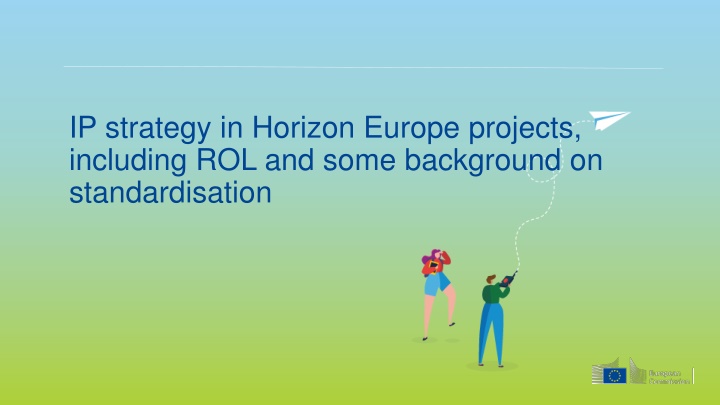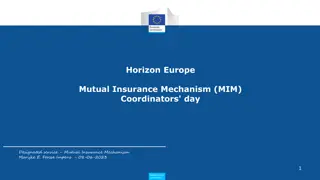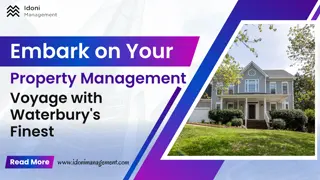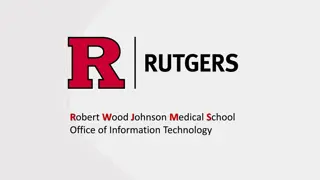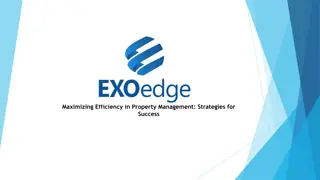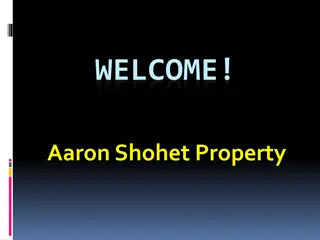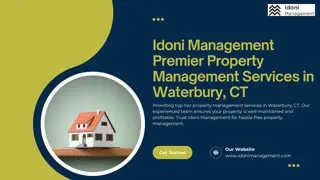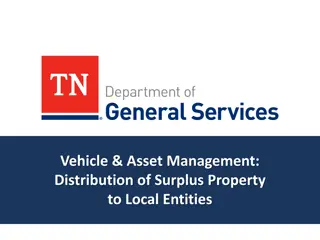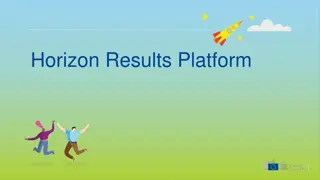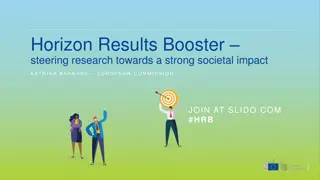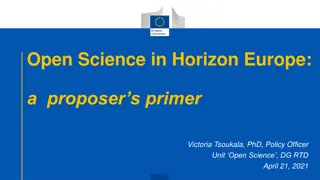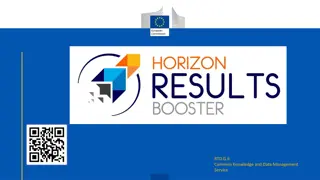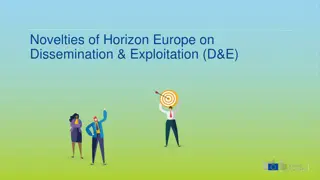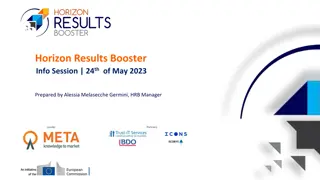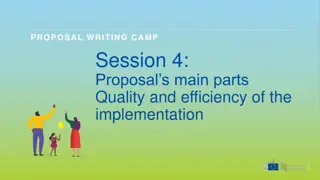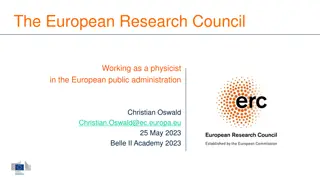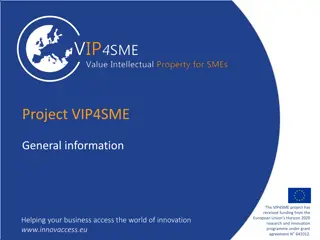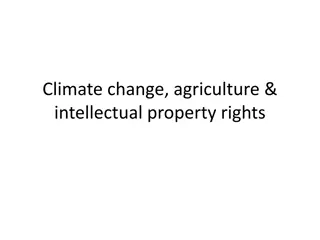Intellectual Property Management in Horizon Europe Projects
Horizon Europe projects require beneficiaries to implement comprehensive strategies for managing intellectual property. This includes protecting and exploiting project results, providing a Results Ownership List (ROL), and considering freedom to operate and publication vs. IP protection balance. Failure to complete the ROL can impede final reporting. In cases of public emergency, beneficiaries may need to grant non-exclusive licenses under fair conditions for addressing emergencies up to four years post-project.
Download Presentation

Please find below an Image/Link to download the presentation.
The content on the website is provided AS IS for your information and personal use only. It may not be sold, licensed, or shared on other websites without obtaining consent from the author.If you encounter any issues during the download, it is possible that the publisher has removed the file from their server.
You are allowed to download the files provided on this website for personal or commercial use, subject to the condition that they are used lawfully. All files are the property of their respective owners.
The content on the website is provided AS IS for your information and personal use only. It may not be sold, licensed, or shared on other websites without obtaining consent from the author.
E N D
Presentation Transcript
IP strategy in Horizon Europe projects, including ROL and some background on standardisation
Management of intellectual property Each Horizon Europe beneficiary shall use its best efforts to exploit the results it owns, or to have them exploited by another legal entity, in particular through the transfer and licensing of results. In this respect beneficiaries are required to adequately protect their results if possible and justified taking account of possible prospects for commercial exploitation and any other legitimate interest. IP management in a proposal: Does the proposal present a comprehensive and feasible strategy for the management of the intellectual property generated in the project, including protection measures (if relevant)? The provision of a results ownership list (ROL) is mandatory at the end of the project. Is the IP strategy commensurate with the described impact pathways to outcomes and impacts and therefore underpins the credibility of these pathways? Does it consider freedom to operate regarding background owned by consortium members or third parties (if relevant)? Does the IP approach give due thought to balancing between publication of results and plans to protect IP, e.g. in terms of timing the respective activities, involvement of IP experts? If relevant (work programme), have additional exploitation obligations in relation to IP been considered?
Results ownership list The beneficiaries must indicate the owner(s) of the results (results ownership list) in the final periodic report . Form in the reporting template: several columns asking whether the ownership is a single or joint ownership, the name of the owner(s), the country of establishment of the owner(s) and whether the results will be exploited by the owner(s). Snapshot in time Failure to fill in it blocking of the final periodic report
Public emergency provision Where the call conditions impose additional exploitation obligations in case of a public emergency, the beneficiaries must (if requested by the granting authority) grant for a limited period of time specified in the request, non-exclusive licences under fair and reasonable conditions to their results to legal entities that need the results to address the public emergency and commit to rapidly and broadly exploit the resulting products and services at fair and reasonable conditions. This provision applies up to four years after the end of the action
Public emergency provision - Scope WHAT? Right to request the beneficiary to grant non-exclusive license under fair and reasonable conditions WHEN? In case of a public emergency = An emergency characterised by a genuine and sufficiently serious threat undermining European Union's security, public order or public health.
Public emergency provision - Scope TO WHOM? To legal entities that need the results to address the public emergency and commit to rapidly and broadly exploit the resulting products and services at fair and reasonable conditions FOR HOW LONG? Minimum = duration decided by the granting authority Maximum = up to four years after the end of the action FOR ALL PROJECTS? Each time the work programme (general annexes) imposes additional exploitation obligations in case of a public emergency.
Right to object to exclusive licence and transfer of ownership of results the granting authority may object to a transfer of ownership or the exclusive licensing of results, if: - the beneficiaries which generated the results have received funding under the grant - it is to a legal entity established in a non-EU country not associated with Horizon Europe, and - the granting authority considers that the transfer or licence is not in line with EU interests .
Right to object to exclusive licence and transfer of ownership of results- Scope FOR ALL PROJECTS? Each time the work programme (general annexes) imposes additional exploitation obligations in case of a public emergency. HOW? Beneficiaries will have to notify to the granting authority the intention to transfer results. A procedure will be put in place to determine the validity of the transfer.
Additional exploitation obligations Article 39 of Horizon Europe legislation gives the possibility to add exploitation obligations. The additional exploitation obligations are useful to tailor some additional obligations to specific needs in a given work programme.
Horizon Europe: More emphasis on standardisation Stronger monitoring (standardisation reporting template) Additional information obligation on standardisation as part of the general annexes Guidance for penholders of Horizon Europe Work Programme Standardisation Booster Trainings Horizon Results Platform
